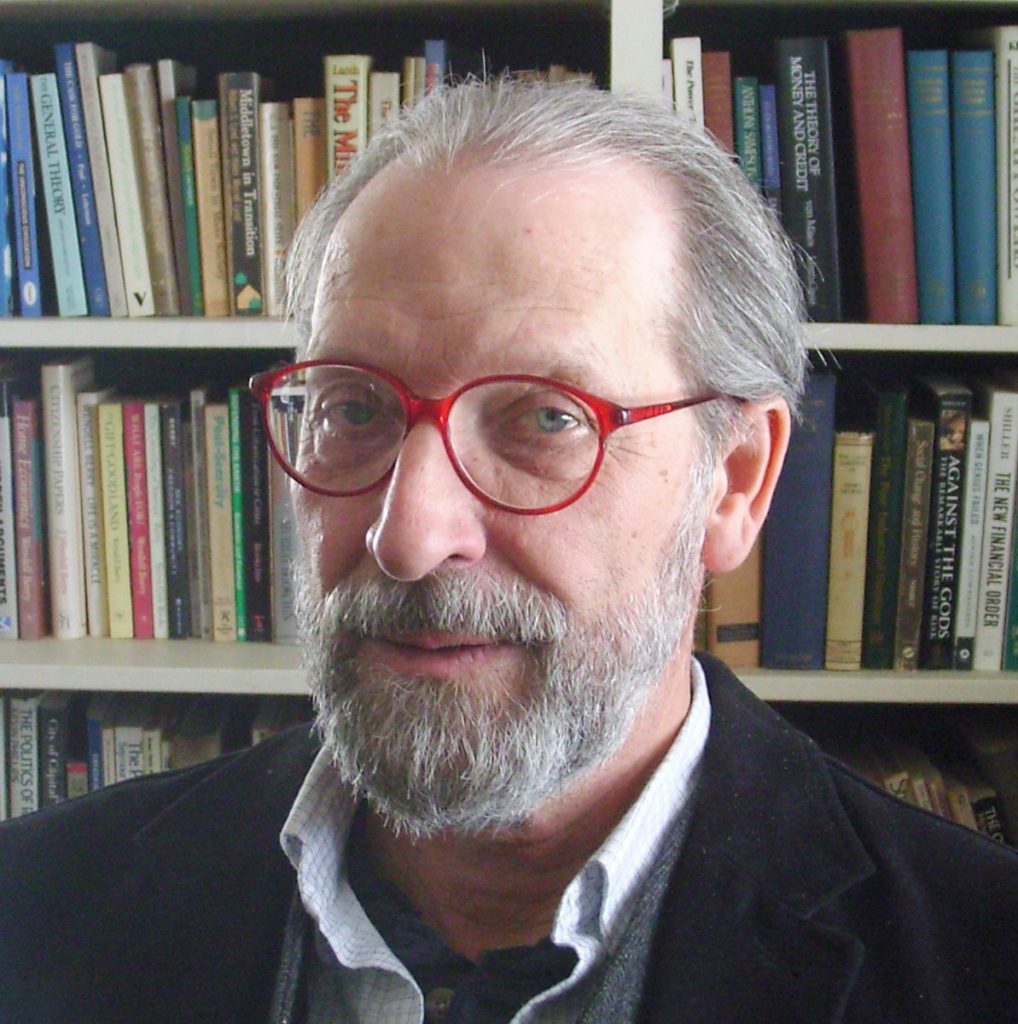Column by Adrian Kuzminski, April 20, 2018
Nation’s Two-Party
System Guarantees
‘The Iron Law Of Oligarchy’

Most voters enroll in one or the other major party, though the number of non-party enrollees has grown in recent years. In our area, and nationally, it’s very roughly one third Democrat, one third Republican, and one third non-partisan, or independent (small “i”).
The two-party system goes back to the battles between Alexander
Hamilton’s Federalists and Thomas
Jefferson’s Republicans. The
Jeffersonian Republicans have since morphed into the Democrats,
and the Federalists into the
Republicans.
Unfortunately, these parties have become a big part of what’s wrong, rather than what’s right, with American politics.
The two political parties – they are not mentioned in the Constitution – have a strangle-hold on the electoral process. It’s difficult, though not impossible, to get on the ballot without the approval of one or the other party.
In the current race in the 19th CD, for instance, party enrollees need to collect only 1,250 signatures to get on the primary ballot. But if you run as an independent, you need 3,500 signatures.
Party candidates have other advantages. They can go to their county party committees to pitch for support and recruit volunteers to circulate their petitions. The parties are also a source of money for candidates.
Independents, by contrast, are entirely on their own.
If the parties were democratic institutions, they might make some sense. But they are self-perpetuating bureaucracies and social networks which are fundamentally oligarchic in spirit, not democratic.

A well-known German sociologist named Robert Michels wrote an influential book over a century ago, entitled “Political Parties,” which argued that regardless of any democratic convictions and practices, political parties, like most complex human organizations, inevitably turn into top-down systems governed by the few who are able to stay in power indefinitely, with little or no accountability to the rank-and-file. He called it “the iron law of oligarchy.”
The founding fathers disdained political parties even though they were eventually caught up in them. To them parties represented “faction,” by which they meant the distortion of beliefs that comes with the polarization of opinion.
The two-party system is polarizing because it reduces all opinions to two choices: left or right, liberal or conservative, the blue team or the red team. A parliamentary system, by contrast, though hardly perfect, allows for a spectrum of views to be heard.
Political parties filled a vacuum left by the Founding Fathers. They distrusted democracy, preferring to leave politics in the hands of elite – persons of property, experience, and judgment, as they put it.
To this end they separated representative government at the state and federal level from local governments, such as New England town meetings, where real democracy was still practiced.
Instead of local governments (towns and counties) being represented at the state level, large electoral districts were created with no direct relationship to local government.
Election to state and federal government required, even in the early days, mass politics to influence anonymous voters; in other words, a propaganda machine to get out the vote, or what we know as a political party.
Thomas Jefferson, in his later years, bemoaned this development.
He argued that the American revolution was incomplete because it failed to integrate democratic local government with broader jurisdictions. He feared the latter, through the instrument of political parties, would come to oppress the former, and it’s hard to argue he was wrong.
The alternative he envisioned he called confederal democracy, where local communities were directly represented in broader levels of government.
The idea was that local communities be represented in larger decision-making bodies, something not the case today. State and federal governments have been captured by financial and corporate interests all too willing to sacrifice the welfare of local communities to their own profit.
Fixing our political system may not be possible without reintegrating local with state and national politics. I hope to say more about this in the future.

